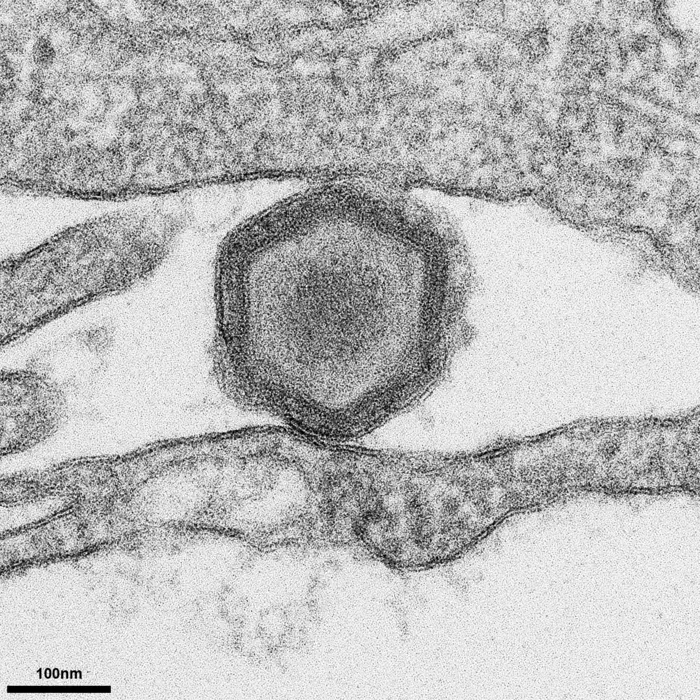
Researchers from esteemed institutions have achieved a significant milestone in the field of virology by developing a synthetic genomics-based reverse genetics system for African swine fever virus (ASFV). This advancement comes from a collaboration between the J. Craig Venter Institute (JCVI), the Friedrich-Loeffler-Institut (FLI), and the International Livestock Research Institute (ILRI). This groundbreaking work is critical as ASFV poses a considerable threat to global swine populations, particularly affecting domesticated and wild pigs across various continents, including Africa, Europe, Asia, and the Caribbean.
African swine fever is emblematic of a viral disease that is extremely contagious and often fatal, with significant ramifications for agricultural economies and food security. A recent analysis has highlighted the potential economic fallout should ASFV reach domestic swine populations in the United States, potentially leading to losses that could exceed $50 billion over a decade. Given the extensive economic stakes surrounding ASFV, the development of an effective reverse genetics system is not just timely; it is essential.
The senior author of the study, Professor Sanjay Vashee from JCVI, commented on the importance of this research. He emphasized that their synthetic genomics-based approach provides a platform for both understanding the intricacies of ASFV and developing advanced tools applicable to other emergent viral threats. This research holds the promise of mitigating the economic impact of ASFV on the global swine industry, ultimately leading to solutions that control and prevent the disease’s proliferation.
The reverse genetics system functions through a series of meticulously orchestrated steps. Initially, scientists create synthetic DNA that mimics the virus’s genetic material. This process involves modifying segments of the ASFV genome, which are then assembled into full-length genomes using the natural recombination capabilities of yeast. Transferring these genomes into E. coli allows scientists to isolate larger quantities, facilitating further experimentation.
Once the synthetic DNA has been prepared, it is introduced into mammalian host cells, where a self-helper virus, a modified and inhibited version of ASFV, is used to promote replication. This self-helper virus has undergone CRISPR/Cas9-based modifications, which prevent it from replicating independently while still providing essential proteins necessary for the synthetic DNA’s assembly into new viral particles. This method ensures the development of viable recombinant viruses that can be utilized for further studies or vaccine development.
The implications of this research are substantial. Historically, ASF outbreaks have inflicted dire economic consequences, amounting to billions of dollars globally. Beyond economic loss, these outbreaks have severe repercussions for food security and livelihoods, especially in regions like Africa, where biosecurity measures to combat ASF are often insufficient. As noted by Dr. Hussein Abkallo of ILRI, this new platform offers hope for developing targeted vaccines, thus enhancing animal health and reducing the environmental impact associated with livestock losses.
Moreover, this reverse genetics approach bears potential for its application beyond ASFV. Researchers foresee adapting this methodology to tackle other viruses with non-infectious genomes, such as the lumpy skin disease virus affecting cattle. The versatility of this synthetic genomics framework positions it as a powerful tool for accelerating vaccine development and an enhanced understanding of various viral pathogens.
In addition, this innovative methodology opens up opportunities for addressing emerging RNA viruses that have posed threats to public health globally, including Zika, chikungunya, Mayaro, and Ebola viruses. Utilizing synthetic genomics as a means to develop reverse genetics tools expedites research efforts into these viruses and their associated health risks, fostering the rapid creation of effective vaccines and treatments.
The collaboration behind this study reflects a diverse team of experts, including co-authors Lucilla Steinaa (ILRI) and first authors Walter Fuchs and Nacyra Assad-Garcia (JCVI). Their collective efforts have culminated in a publication entitled “A synthetic genomics-based African swine fever virus engineering platform,” published in the esteemed journal Science Advances. This work received funding from the International Development Research Centre’s Livestock Vaccine Innovation Fund, showcasing both scientific innovation and commitment to addressing pressing global challenges.
In conclusion, the emergence of this synthetic genomics-based reverse genetics system marks a turning point in virology research, particularly concerning ASFV. As the global community grapples with the ramifications of viral outbreaks, tools like these represent not just advancement in scientific knowledge, but a crucial advancement towards safeguarding animal health, ensuring food security, and protecting livelihoods around the world.
Subject of Research: African Swine Fever Virus (ASFV)
Article Title: A synthetic genomics-based African swine fever virus engineering platform
News Publication Date: March 26, 2024
Web References: JCVI
References: Science Advances, DOI: 10.1126/sciadv.adu7670
Image Credits: Kati Franzke, Friedrich Loeffler Institute
Keywords: African swine fever virus, reverse genetics, synthetic genomics, vaccine development, virology, economic impact, animal health, CRISPR/Cas9, global health, emerging viruses.
Tags: African swine fever researchagricultural economy impactASFV virology advancementsdomesticated and wild pig healtheconomic consequences of ASFVfood security implicationsglobal swine population threatsinternational research collaborationswine disease prevention strategiessynthetic genomics reverse geneticsvaccine development toolsvirology innovation in agriculture





